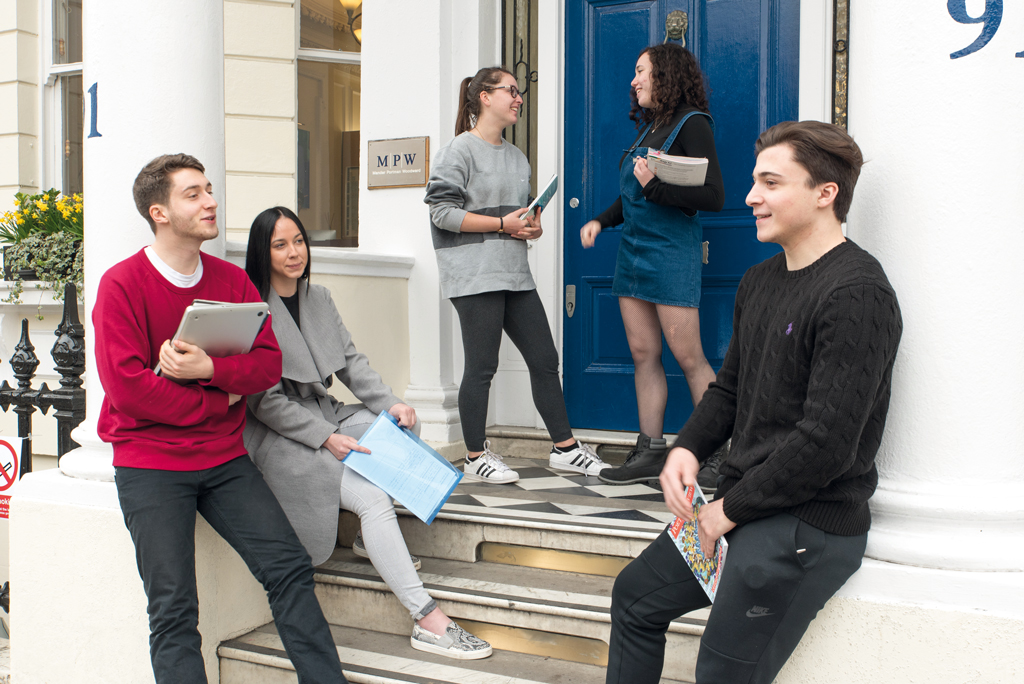Stick or Twist? Sixth Form College Pros and Cons
By
6 years ago


Max Davidson weighs up the options: move to a sixth form college or stay at school for two more years?
After sweating over their children’s GCSE results, many parents regard the sixth form, at least initially, as a time of relative calm, with no exams on the immediate horizon. However ambitious they are for their offspring, they want them to take their foot off the academic pedal for a while. That is understandable. But if they think that getting the best out of the sixth form years is straightforward, they are sadly mistaken. In the marketplace of education, it is one of the most crowded, competitive spaces of all.
Stick or twist? Unless a pupil is unhappy at their present school, it would seem, on the face of it, the height of folly to move them to a completely different school at the start of sixth form, with all the consequent disruption. But savvy parents have been doing that for years, often to good advantage.
A Modern Predicament

In the 1970s and 1980s, a bright girl might do her O-levels at Cheltenham Ladies’ College, then decamp to Marlborough College to do her A-levels in the company of – alleluia! – boys. As other independent schools followed Marlborough’s lead, the co-ed sixth form became a familiar fixture on the educational landscape.
But a dynamic sixth form in the 21st century requires far more than gender balance. It requires a sophisticated analysis of how to get the best out of these critical years in a young person’s development. The best schools increasingly understand this point and offer sixth-formers opportunities and challenges that would not have been there a generation ago.
Harrow’s sixth form is a real powerhouse and academic emphasis is on ‘giving boys a taste of teaching and learning at university’. Pupils are expected to think for themselves, read widely, attend super-curricular lectures and, as well as sitting four A-levels, take two unexamined ‘elective’ courses. The school also freshens its intake at this stage, taking on up to 20 new pupils from other schools in the sixth form.
Hot Competition

If traditional public schools are finding new ways to reinvent themselves in the sixth form, they are facing increasing competition from another key player in the market – the sixth form college. In the state sector, some of the most impressive schools in the country are sixth form colleges – notably Hills Road Sixth Form College in Cambridge, which regularly has the third highest level of Oxbridge entry in the country behind Winchester and Eton. But independent sixth form colleges are also going from strength to strength.
Many of them are members of the 23-strong Council for Independent Education (CIFE), an umbrella body originally formed in 1973. Its founder members were a rag-bag of old-fashioned crammers, narrowly focussed on exam results, and even more old-fashioned finishing schools, which aimed to give intellectually under-endowed girls the vital skills, such as deportment and flower-arranging, which they needed to bag husbands in those halcyon days.
But the elite sixth form colleges of the 21st century are very different breeds. Mike Kirby, the Canadian-born head of Ashbourne College in London, which he founded in 1981, and also Chair of Public Relations at CIFE, has witnessed what amounts to an educational revolution: ‘When I founded Ashbourne, our intake was mainly comprised of students needing to re-take their A-levels. Now, re-takes account for only around six per cent of our teaching. The hallmark of a good sixth form college is academic flexibility. Our students get the benefit of individual attention in small classes and can choose from a wide range of A-levels. Our language courses alone range from Latin and Greek to Japanese.’

Reasons for Restlessness
Around two-thirds of Ashbourne’s students come from the UK, the rest from overseas, with Russian students topping an impressively cosmopolitan intake. ‘At one stage, we had more girls than boys,’ says Kirby. ‘They had been at their current schools since the age of 11 and were getting restless. A relaxed co-educational environment suited them down to the ground. Now, the balance of the sexes is more or less equal.’
Ashbourne’s fees, at around £27,000 a year, are broadly comparable with top London day schools such as Westminster and St Paul’s, but parents clearly regard it as money well spent. ‘They appreciate the fact that top-quality, small-class teaching does not come cheap,’ Kirby explains.
In a competitive academic environment, good exam results will always remain one of the key tests by which sixth form colleges are judged, and some pass it with flying colours. In 2018, Cardiff Sixth Form College topped the independent schools’ league table when it came to A-level results. But the colleges’ appeal, to parents and students alike, is much broader than it used to be.
‘It is the adaptability of sixth form colleges that makes them so formidable,’ reflects James Wardrobe, the CIFE press officer, who used to be head of Lansdowne College in London. ‘Students love the informality of the colleges, the lack of uniform, the fact that you call teachers by their first name, and so on. But their parents demand, and get, academic rigour. Around half of the students at CIFE colleges go on to Russell Group universities, and that is mainly down to the calibre of the teaching: dedicated specialists focussing exclusively on A-levels. The range of A-level options, and the fact that you can take them in any combination, also gives the best colleges the edge over traditional public schools.’
What’s On Offer
There is certainly a good selection of sixth form colleges for parents interested in exploring this option (see below). Some of them are real centres of excellence which have been refining their offering for years. Mander Portman Woodward (MPW), founded by a group of Cambridge graduates in 1973, now has colleges in Birmingham and Cambridge as well as London. Its Easter revision courses, tuning up students for their A-levels, are particularly popular. Davidson Laing and Dick (DLD), which overlooks Westminster and the Thames, offers on-site boarding – the only London sixth form college to do so – and achieved a 97 per cent pass rate this summer.

Oxford and Cambridge, as you might expect, each boast a clutch of good sixth form colleges. UWC Atlantic College in Cardiff (part of the United World Colleges group, where the emphasis is robustly globalist) is also highly regarded. Look out, too, for colleges with ‘tutors’ or ‘tutorial’ in their title (e.g. Westminster Tutors). Here you can expect, not just small classes, but one-to-one tuition where appropriate.
Last but not least, there is Hurtwood House in Surrey, a residential co-educational sixth form college which modestly describes itself as ‘the most exciting school in England’. Are there tigers roaming the grounds? Is there a pinball machine in the physics lab? Do the teachers carry wands? No, but the 300-odd pupils, many from overseas, seem to have a high old time and most go on to good universities. The fees (£9,650 per term or £14,476 for boarders) are on a par with top independent schools, but the ethos is so different that you could be living in a different country.
An Antidote to Boredom
Like other leading sixth form colleges, Hurtwood has cottoned on to something that traditional independent schools ignore at their peril – that the A-level years are not just about more of the same, on the same dreary academic treadmill, but a time when pupils are hungry, even ravenous, for change.
Need to Know
A good starting point is the website of the Council for Independent Education (cife.org.uk), an umbrella body representing 23 independent sixth form colleges spread across the country (although please note that not all the leading colleges are members of CIFE).
Good sixth form colleges in London include Ashbourne College, DLD (Davidson Laing & Dick) College, MPW (Mander Portman Woodward) London and Westminster Tutors
If you’re looking further afield Atlantic College Cardiff (part of the United World Colleges group), Cardiff Sixth Form College, Hurtwood House, Surrey, MPW Cambridge and a clutch of Oxford colleges, including Carfax College and the Oxford Sixth Form College, formerly the Oxford Tutorial College, are all good options.
This article was originally published in School House Magazine Spring/Summer in March 2019.
READ MORE: Incredible Global Schools Worth the Long-haul



